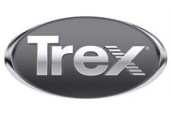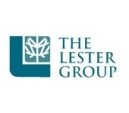Automation and innovation may be scary prospects for an industry that is often resistant to change, but the relationship-based LBM business may be beginning to shift. Keith Meany, president of Skubot, and Margaret Whelan, CEO of Whelan Advisory, spoke on a panel at the ProSales 100 Conference discussing their approaches and views of automation and the potential downstream benefits it can have in business.
“The thing that I think that everything has to look at from a broader perspective is that you can’t risk missing out on the adaptation of technology,” Meany said.
Meany’s Skubot provides a technology that can scan products without barcodes and access a database to identify the product to customers and sales associates. The technology is currently used in Ferguson stores with plumbing parts with planned expansion into other business sectors. Meany said the product experienced some pushback from sales associate nervous about what the new robotics would mean for their jobs.
“You have to balance; everyone compartmentalizes it, but some jobs are taken and some jobs are gained,” Meany said. “The way that our partners have explained the process to their associates at the store level is that this isn’t taking your jobs, it’s making you better at it. Ultimately, I think that’s the important thing to remember. We aim to empower people to be better at their jobs.”
The panelists discussed how LBM is a relationship-based industry, but its beginning to change. The industry needs to embrace that with collaborations in research and development that are geared towards innovation.
“We are seeing the products companies are anticipating what is going to change and offering integrated solutions,” Whelan said. “There is always a lot of challenges bringing new product to our market, the adoption rate is very slow.”
Both Meany and Whalen discussed how those in the LBM sector can make their businesses more resilient to potential future disruptions by planning for the future.
“It’s not something you can while sitting at your desk and it’s very confusing,” Whelan said of making businesses more resilient for the future. “One of the best answers is to recruit people from outside our industry to bring new skills.”
Meany talked about the importance of understanding innovation. Making businesses more resilient in the future involves innovating, but it does not necessarily have the definition most associate with it.
“Innovation can be anything that makes your company more efficient,” Meany said. “When you think about innovation moving forward, you can’t compartmentalize, you have to look across the whole way an organization operates and all the ways you can make it more efficient and the tools to do that. Innovation isn’t necessarily a computer or a robot.”



